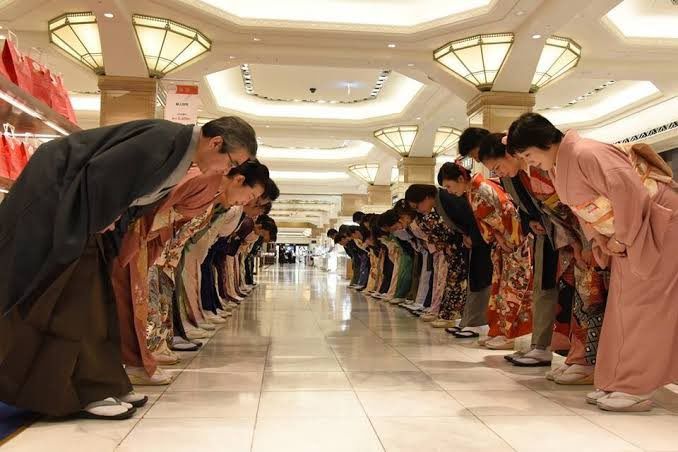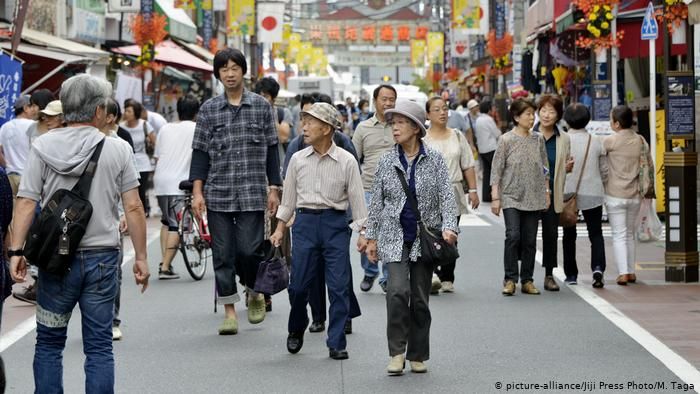Japan is a dream destination for many, renowned for its stunning landscapes, vibrant cities, rich culture, and unparalleled politeness. It’s a country where order, respect, and adherence to rules are deeply ingrained in society. While this makes it one of the safest and most pleasant places to visit, it also means that certain behaviors, acceptable or minor in other countries, can lead to serious legal trouble in Japan. Ignorance of the law is rarely an excuse. To ensure your trip is memorable for all the right reasons, it’s paramount to understand and respect Japan’s legal and social boundaries. This guide outlines crucial things you MUST NOT DO to avoid breaking the law and facing fines, detention, or even deportation.
I. Absolutely Forbidden – Zero Tolerance Areas

These are non-negotiable and carry the most severe penalties, including lengthy prison sentences and lifetime bans from Japan.
-
DO NOT Bring or Use Illegal Drugs (This is Paramount!)
-
The Law: Japan has some of the strictest drug laws in the world. This applies to marijuana (cannabis), cocaine, heroin, MDMA (ecstasy), methamphetamines, synthetic cannabinoids (Spice/K2), and even some over-the-counter medications that are legal elsewhere (see next section).
-
Consequences: Possession, use, trafficking, or cultivation of illegal drugs can lead to immediate arrest, lengthy pre-trial detention (often without bail), severe prison sentences (years, not months), hefty fines, and subsequent deportation and a lifetime ban from entering Japan. Foreigners receive no special treatment.
-
What NOT to Do:
-
DO NOT bring any illicit substances into Japan, even in tiny amounts for personal use. Customs checks are thorough.
-
DO NOT accept or carry packages for anyone without knowing their exact contents.
-
DO NOT purchase or use drugs offered to you in Japan.
-
DO NOT assume that because cannabis is legal in your home country/state, it’s acceptable in Japan. It is unequivocally illegal.
-
-
-
DO NOT Carry Prohibited Weapons
-
The Law: Japan has extremely strict weapon control laws. This includes firearms (obviously), but also extends to many types of knives, swords (even decorative ones if not properly declared/managed), and other items considered weapons.
-
Blade Length: Carrying a knife with a locking blade, or a blade longer than 6 cm (around 2.36 inches) without a justifiable reason (e.g., a chef transporting work tools, a fisherman with a utility knife for fishing) is illegal. Even smaller utility knives or multi-tools can cause problems if you can’t provide a good reason for carrying them in public.
-
Consequences: Arrest, fines, imprisonment, and deportation.
-
What NOT to Do:
-
DO NOT carry pocket knives, multi-tools with blades, or any kind of weapon for “self-defense.” Japan is very safe; you won’t need it.
-
DO NOT purchase swords or large knives as souvenirs without understanding the intricate export procedures and ensuring they are transported legally (usually shipped, not carried in luggage).
-
DO NOT forget to declare any such items if you have a legitimate reason and permission.
-
-
II. Prescription & Over-the-Counter Medications: A Potential Minefield
Many common medications from your home country may be illegal or require special permission in Japan.
-
DO NOT Bring In Banned or Restricted Medications Without Permission
-
The Law: Certain stimulants (like those found in ADHD medications such as Adderall, Vyvanse, or even some cold/allergy medications like Sudafed containing pseudoephedrine), sedatives, strong painkillers containing opiates (like codeine), and psychotropic drugs are strictly controlled or banned in Japan.
-
The “Yakkan Shoumei”: For restricted medications, you may need to apply for a “Yakkan Shoumei” (an import certificate) before your trip. This process can take weeks.
-
Consequences: Confiscation of medication, denial of entry, arrest, and detention.
-
What NOT to Do:
-
DO NOT assume your prescription is valid in Japan just because a doctor prescribed it in your home country.
-
DO NOT bring in more than a one-month supply of most allowable prescription medications without a Yakkan Shoumei.
-
DO NOT bring in any medication containing stimulants like pseudoephedrine or amphetamine-derivatives without verifying its legality and obtaining necessary permissions.
-
DO NOT mail prescription drugs to yourself in Japan; they will likely be seized.
-
-
What TO Do:
-
Consult the website of the Japanese Ministry of Health, Labour and Welfare or your nearest Japanese embassy/consulate well in advance of your trip.
-
If required, apply for a Yakkan Shoumei.
-
Carry medications in their original packaging with a copy of your prescription and a doctor’s note explaining your condition and the necessity of the medication.
-
-
III. Public Conduct & Civic Responsibility

Japan values public order and cleanliness highly. What might be a minor offense elsewhere can be taken seriously here.
-
DO NOT Litter or Dispose of Trash Improperly
-
The Law & Custom: Littering is illegal and socially unacceptable. You’ll notice a distinct lack of public trash cans in many areas. This doesn’t mean you can drop your trash anywhere.
-
Consequences: Fines, and severe social disapproval.
-
What NOT to Do:
-
DO NOT drop cigarette butts, food wrappers, drink bottles, or any other trash on the street or in parks.
-
DO NOT try to stuff your personal trash into bins at convenience stores meant for their customers’ recently purchased items, or bins by vending machines meant only for cans/bottles bought there.
-
-
What TO Do: Carry a small plastic bag with you to store your trash until you find an appropriate public receptacle (often at train stations or convenience stores if you’ve made a purchase) or can dispose of it back at your accommodation. Japan has complex recycling rules, so try to sort if possible.
-
-
DO NOT Smoke Outside Designated Smoking Areas
-
The Law: Smoking on public streets is banned in many municipalities, especially in busy city centers. You can only smoke in clearly marked designated smoking areas (often small, crowded outdoor spots or indoor smoking rooms). This also applies to e-cigarettes and vapes in many jurisdictions.
-
Consequences: Fines (can be ¥2,000 to ¥20,000 or more depending on the city) and being told off by locals or officials.
-
What NOT to Do:
-
DO NOT walk and smoke (“aruki-tabako”).
-
DO NOT smoke right outside building entrances or in crowded areas unless it’s a designated spot.
-
DO NOT assume you can smoke in parks or on train platforms unless explicitly permitted.
-
-
-
DO NOT Be Excessively Loud or Disruptive in Public
-
The Custom (and Potential Legal Issue): While not always strictly “illegal” unless it escalates, causing a public disturbance is taken very seriously. This includes loud conversations on trains or buses, shouting in public, or disruptive behavior in restaurants or shops.
-
Consequences: Social ostracization, being asked to leave establishments, or even police intervention if the behavior is deemed a public nuisance.
-
What NOT to Do:
-
DO NOT have loud phone conversations on public transport (set your phone to silent mode – “manner mode”).
-
DO NOT blast music from your phone or speakers in public.
-
DO NOT engage in loud arguments or overly boisterous behavior in quiet public spaces or restaurants. While izakayas (Japanese pubs) can be lively, there’s still a limit.
-
-
IV. Photography, Privacy & Drones
Respect for privacy is paramount in Japan.
-
DO NOT Take Photos or Videos of People Without Explicit Consent
-
The Law & Custom: While not always illegal to photograph people in public spaces generally, Japan has strong privacy considerations. Photographing or filming individuals up close, especially children, without their clear permission can be seen as a violation of privacy and potentially lead to police involvement if the person complains. “Upskirting” or other voyeuristic photography is, of course, strictly illegal and carries severe penalties.
-
Consequences: Confrontation, demand to delete photos/videos, police involvement, potential arrest for more serious offenses.
-
What NOT to Do:
-
DO NOT take close-up shots of identifiable individuals (especially their faces) without asking first. A simple gesture and a smile with your camera can work.
-
DO NOT photograph inside certain private establishments, temples, shrines, or museums where “No Photography” signs are posted.
-
DO NOT take photos that could be construed as voyeuristic.
-
DO NOT photograph Geiko/Maiko (Kyoto geishas) in private streets in Gion without permission or in a way that obstructs them or feels like harassment. Some areas now have fines for unauthorized photography of Geiko/Maiko.
-
-
-
DO NOT Fly Drones Without Adhering to Strict Regulations
-
The Law: Japan has very specific and restrictive laws regarding drone (UAV) operation. Flying is prohibited over residential areas, near airports, above crowds, at night, and in many public parks and major cities (like Tokyo and Kyoto entirely, unless with very specific permission). Drones over 200g require registration.
-
Consequences: Hefty fines (up to ¥500,000), confiscation of the drone, and potential arrest.
-
What NOT to Do:
-
DO NOT fly a drone without thoroughly researching the specific rules for the area you are in.
-
DO NOT assume you can fly it in national parks or scenic spots without checking local regulations. Many popular tourist sites ban drones.
-
DO NOT fly it over people or private property.
-
-
V. Driving & Transportation
Driving in Japan requires specific documentation and adherence to a zero-tolerance policy on drink driving.
-
DO NOT Drive Without a Valid International Driving Permit (IDP) or Japanese License
-
The Law: To drive in Japan, most foreign nationals need an International Driving Permit (IDP) issued under the 1949 Geneva Convention, accompanied by their valid home country driver’s license. Some countries have bilateral agreements allowing driving with an official translation. Your standard home license alone is NOT sufficient.
-
Consequences: Driving without a valid license/IDP is illegal. This can lead to fines, arrest, and invalidation of any insurance.
-
What NOT to Do:
-
DO NOT attempt to rent a car or drive without the correct IDP format (1949 Geneva Convention) or a recognized official translation.
-
DO NOT forget to bring your original home country license as well; the IDP is only valid with it.
-
-
-
DO NOT Drink and Drive (Absolutely ZERO Tolerance)
-
The Law: Japan has a zero-tolerance policy for driving under the influence of alcohol. The legal blood alcohol limit is very low (0.03%), meaning even one drink can put you over.
-
Consequences: Severe penalties including hefty fines (up to ¥1,000,000), imprisonment (up to 5 years), immediate license revocation, deportation, and a ban from re-entry.
-
What NOT to Do:
-
DO NOT have even a single alcoholic beverage if you plan to drive.
-
DO NOT allow someone who has been drinking to drive a car you are a passenger in. Passengers can also be held liable.
-
DO NOT lend your car to someone who might drink and drive. The owner of the vehicle can also be penalized.
-
-
This also applies to cycling under the influence, which is also illegal and carries penalties.
-
-
DO NOT Disobey Traffic Rules
-
The Law: Japan drives on the left. Adherence to speed limits, traffic signals (especially no turning on red unless a specific arrow indicates), and pedestrian crossings is strictly enforced.
-
Consequences: Traffic tickets, fines, points on your license (if applicable), and potential accidents.
-
What NOT to Do:
-
DO NOT forget to drive on the left side of the road.
-
DO NOT speed. Speed cameras are common.
-
DO NOT use a mobile phone while driving (unless hands-free).
-
DO NOT ignore pedestrian crossings; pedestrians often have absolute right-of-way.
-
-
VI. Immigration, Customs & Work
Compliance with visa and customs regulations is mandatory.
-
DO NOT Overstay Your Visa or Work on a Tourist Visa
-
The Law: Overstaying your permitted period of stay (usually 90 days for tourists from visa-exempt countries) is a serious offense. Working, including unpaid internships or volunteer work that could be done by a paid employee, while on a tourist visa is illegal.
-
Consequences: Detention, fines, deportation, and a ban from re-entering Japan for several years (typically 5-10 years, or even permanently for egregious violations).
-
What NOT to Do:
-
DO NOT lose track of your visa expiry date.
-
DO NOT engage in any paid work or activities that could be construed as work while on a tourist visa. This includes things like busking, teaching English informally for payment, etc.
-
DO NOT assume visa runs (briefly leaving and re-entering Japan to reset your tourist stay) are always permissible or without scrutiny.
-
-
-
DO NOT Fail to Declare Restricted or Prohibited Items at Customs
-
The Law: You must declare certain items upon entry, including large amounts of currency, animal products, plant products, and, as mentioned, certain medications and weapons. Bringing in prohibited items (like meat products from many countries, fresh fruits/vegetables) can lead to problems.
-
Consequences: Fines, confiscation of goods, denial of entry, or arrest for more serious items like undeclared weapons or drugs.
-
What NOT to Do:
-
DO NOT bring meat products (jerky, sausages), fruits, or vegetables without checking the very strict quarantine rules. Many are completely prohibited.
-
DO NOT fail to declare currency exceeding ¥1,000,000 (or equivalent).
-
DO NOT bring in counterfeit goods. While primarily aimed at sellers, possessing large quantities can raise suspicion.
-
-
VII. Respect for Property & Establishments
Treat property with care and respect business rules.
-
DO NOT Engage in Vandalism or Graffiti
-
The Law: Damaging public or private property, including graffiti, is illegal and viewed very poorly.
-
Consequences: Arrest, fines, potential imprisonment, and compensation for damages.
-
What NOT to Do:
-
DO NOT write, carve, or stick anything on temples, shrines, public monuments, trains, or any other property.
-
-
-
DO NOT Shoplift or Engage in “Dine and Dash”
-
The Law: Theft, no matter how minor the item, is a crime. This includes leaving a restaurant or bar without paying the bill.
-
Consequences: Arrest, fines, detention, and deportation. Japanese authorities can detain suspects for extended periods during investigation.
-
What NOT to Do:
-
DO NOT take items from stores without paying.
-
DO NOT leave a restaurant, cafe, or bar without settling your bill.
-
-
-
DO NOT Ignore Establishment Rules (e.g., No Outside Food/Drink, Tattoo Policies)
-
The Law & Custom: While not always “illegal” in a criminal sense, refusing to follow an establishment’s clearly posted rules can lead to being asked to leave, and if you refuse, it can escalate to trespassing or disturbance charges.
-
Tattoos: Many onsen (hot springs), swimming pools, and gyms still prohibit entry for people with visible tattoos due to historical associations with organized crime (Yakuza). While attitudes are slowly changing, especially in tourist-friendly areas, the rule often stands.
-
What NOT to Do:
-
DO NOT bring outside food or drink into restaurants or cafes unless explicitly permitted.
-
DO NOT ignore “no tattoo” signs at onsen or pools. Some may allow small tattoos if covered by a patch, but always ask or check their policy. Arguing can lead to being barred.
-
-
VIII. General Important Advice to Stay Out of Trouble
-
DO Carry Your Passport/Residence Card: Foreign nationals are legally required to carry their passport (for tourists) or residence card (Zairyu card for residents) at all times. Police can ask to see it, and failure to produce it can lead to fines or detention.
-
DO Cooperate with Authorities: If approached by police or officials, remain calm and polite. Cooperation is generally expected and appreciated.
-
DO Get Travel Insurance: Ensure it covers legal assistance, as legal fees in Japan can be very high.
-
DO Learn Basic Japanese Phrases: Knowing a few phrases for “excuse me” (sumimasen), “thank you” (arigato), and “I don’t understand” (wakarimasen) can go a long way.
-
DO Know Your Embassy/Consulate Information: Keep their contact details handy in case of serious trouble. They can provide advice and assistance, though they cannot get you out of jail or override local laws.
Conclusion: Respectful Travel is Rewarding Travel
Japan is an incredibly welcoming country with a unique and fascinating culture. The vast majority of Japanese people are kind, helpful, and understanding towards foreigners. However, this welcome is built on a foundation of mutual respect, and that includes respecting the country’s laws and social norms.
By being aware of these “What NOT To Do” tips, you’re not only protecting yourself from potential legal repercussions but also demonstrating your respect for Japanese society. This will, in turn, lead to a much richer, smoother, and more enjoyable travel experience. Japan has so much to offer; don’t let a preventable mistake mar your journey. Travel smart, stay informed, and embrace the wonders of Japan responsibly.

